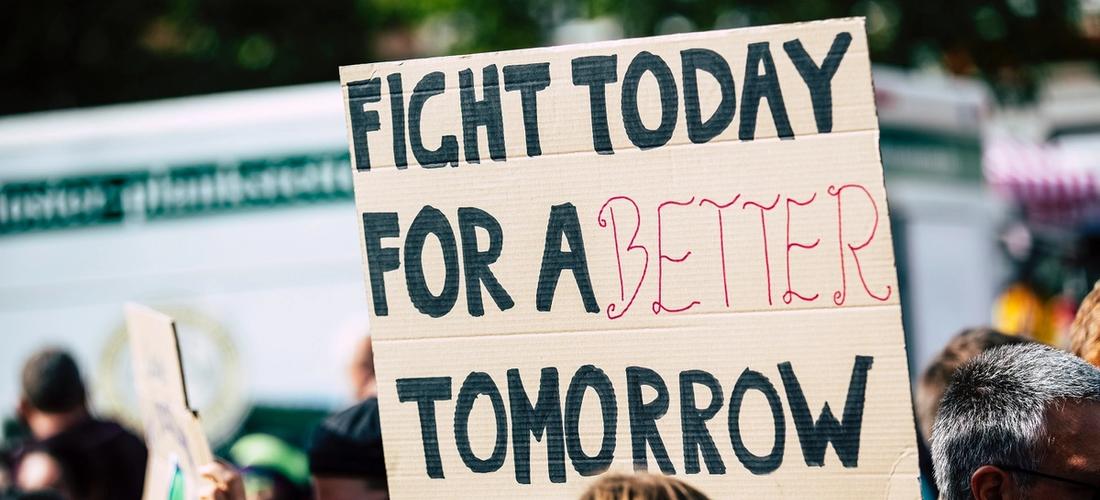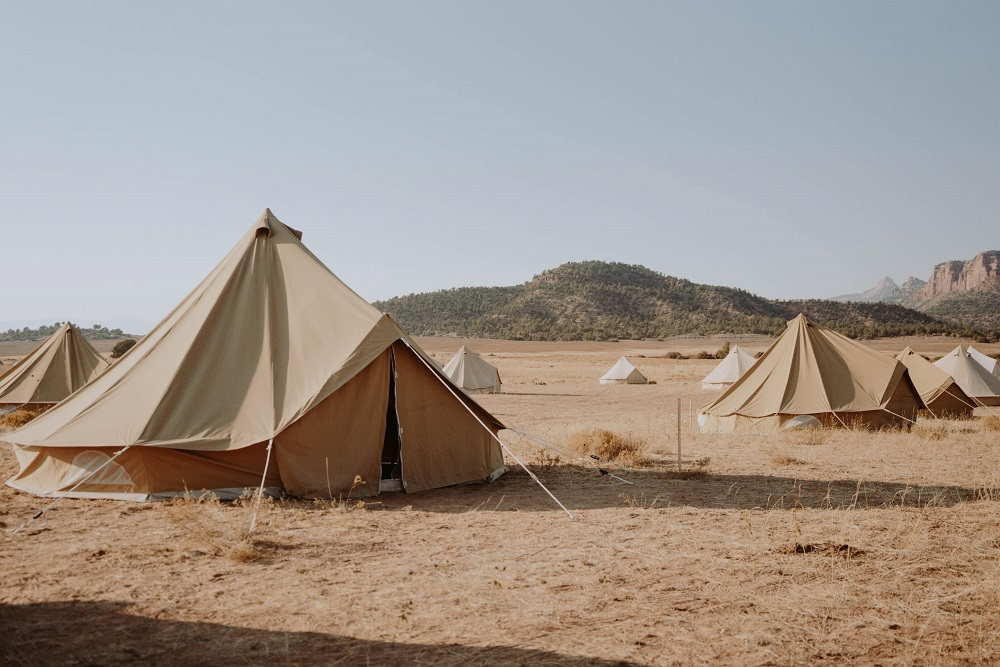How the Stories of Hajar (ra) and Ibrahim (as) Teach Us The Worth of Sacrifice
Faith
|
Jul 16, 2021
|
5 MIN READ

Image source: Markus Spiske from Pexels
Imagine that Allah (S) has instructed you to sacrifice your most beloved child for His sake. No reasons as to why. No explanations given. It is simply a test of your willingness to sacrifice for His sake. And as you prepared to follow his command, heart heavy but also fully trusting in Allah (S), your own child comforted you and told you he also trusted Allah(S). So you proceeded and instead of sacrificing your son, Allah replaced him with a ram.
Imagine you’ve been left in the desert with your infant child by your husband, who hesitated briefly to follow Allah (S)’s commandment to do so until you gently told him to trust in what Allah (S) commanded. And so he left you, and as your milk dried up and desperation took over, you ran between two mountains seven times while your baby cried of thirst – until under his kicking feet, in a hot desert devoid of water, the precious water of Zamzam flowed out of the sand.
If ever there were stories that embodied sacrifice and trust, it is these of Prophet Ibrahim (as) and his son, Ismael (as), and also that of Hajar (ra), mother of Ismael and what she endured when her child was an infant. That the rituals we follow in Hajj (running seven times between the peaks of Safa and Marwa to honor Hajar (ra)’s story) and for Eid ul Adha (participating in qurbani/udhiya to honor Prophet Ibrahim (as)’s story) stem from these two moments in Islamic history shows us how much there is to learn from their extraordinary faith in Allah (S) and willingness to sacrifice of themselves.
In this reflection on Dhul Hijjah, Ibrahim (as) and Hajar (ra), Zeinab Khalil writes for Amaliah.com,
“Eid Al Adha is ultimately about the joy of giving – the joy we can experience through sacrifice and offering, and not only through the more obvious joy of receiving. It is about commemorating the legacy of Ibrahim and his trust in Divine Will through his willingness to sacrifice his son, and it is also very much about commemorating Hajar’s sacrifice in ego and hard work to find sustenance for herself and her baby, and most importantly, that she took on this task with utter trust in Divine Decree.”

Image source: Dziana Hasanbekava of Pexels
It’s admittedly hard sometimes to sacrifice oneself and associate that with the joy of giving. Whether we are sacrificing our time and energy and giving, giving, giving to our family at the expense of other things we also want to do, or the sacrifice we do by putting our bodies and hearts on the line for social justice issues, like Black Lives Matter or standing up for Palestine or fighting against xenophobia, it can be so heavy and wearisome.
We know the fights must be fought. We know others must be cared for. We know that at some stages in our lives, we must put the needs of others in front of ours time and time again. We know we must stand up for justice, and not just with our internal thoughts, but with our words, deeds and actions. How does one find radical joy within this? How does one maintain their faith and trust in Allah (S)’s plan to see this all through to the end when meaningful change moves slowly and may not be achieved in our lifetime?
Sacrifice is just that – the act of surrendering oneself for the sake of Allah (S) to enjoin good and forbid evil. That leap of faith and divine trust is immensely powerful and hard to come by. After all, we are human. We may not always have the strength of a Prophet Ibrahim (as) or Hajar (ra), but we are stronger than we think.
We are not asked in these modern times to sacrifice the life of loved ones or to find sustenance within a desert, but in a way each of us are being asked to do versions of this in the choices we make to get out of our comfort zone and get involved in movements that matter – to stand up for humanity and work to dismantle systems of injustice in ways both small and big.

We are being asked to do the “heart work” of feeling the pain of our fellow Muslims and human beings and then asking ourselves – what can we do to make it better? How can we help? And, within this heart work, these sacrifices we make, is the promise, Insha’Allah, of not only immense rewards in the hereafter but also opportunities for personal and spiritual growth. Allah (S) never asks us to sacrifice something without giving us something better in return, in this life or the next.
Prophet Ibrahim (as)’s reward was clear. And Hajar (ra)’s patience, strength, sacrifice and steadfastness was rewarded with Zamzam and generations of Muslims echoing her footsteps in their Hajj and umrah rituals.
As Zeinab writes,
“I will … use the three auspicious days of Eid Al Adha to reflect on the legacy of Hajar, a Black Egyptian woman whose contributions and sacrifices founded Makkah, the historic epicenter not just of Islam but of Tawheed – affirmation in the Wholeness and Oneness of the Divine that all sentient beings are born with. I will reflect on the capacity of Hajar to trust and believe in Allah, who was elevated by meeting Angel Jibreel and witnessed a divine manifestation (the spring of Zamzam) of Allah’s mercy, love and care for us. What we would call simply a “miracle” today was actually through intentional heart work – her spiritual and physical labor – that allowed her to receive soul lessons in Divinity that ultimately offered her and others ease and collective reprieve.”
May we all embody the stories of Hajj, Dhul Hijjah and Eid ul Adha and apply it to our lives. May we do the intentional heart work and grow our faith in Allah (S) to help us give of ourselves to others. May the oppressed be granted freedom, may justice prevail, may we stay on sirat ul mustaqeen, and may our du’as be answered.
Subscribe to be the first to know about new product releases, styling ideas and more.
What products are you interested in?

